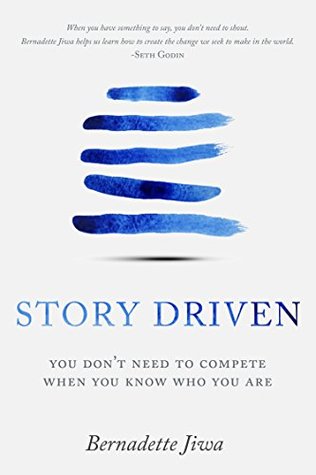More on this book
Community
Kindle Notes & Highlights
Read between
January 7 - January 19, 2020
In a globalised world, without the grounding of the village, we don’t always have that sense of being visible, contributing members of tight-knit groups or local neighbourhoods.
We have become reactive to the competitive landscape, rather than responsive to the needs of our communities—those people we hope to serve. We are so focused on the competition, or even the threat of it, that we’ve forgotten to double down on what makes us and our work unique and valuable.
All change happens at the edges. It starts with the first person who decides to expose a truth.
Great companies have something in common: they don’t try to matter by winning.
‘The critical question is not “How can I achieve?” but “What can I contribute?”’ —Jim Collins, reflecting on what he learned from Peter Drucker, in the foreword to The Daily Drucker: 366 Days of Insight and Motivation for Getting the Right Things Done
As Professor Dan Ariely reminds us in his book Payoff, meaning’s ‘essential quality has to do with having a sense of purpose, value, and impact—of being involved in something bigger than the self’.
We humans are wired for connection and contribution. We thrive when we get the opportunity to do both. This is why there is an element of fundamental good in every business backstory. You just have to stop for long enough and retrace your steps to find
When a business strives to be ‘the industry leader’, the bottom line gets in the way of putting customers first. It’s hard to build a product or deliver a service you’re proud of when you are focused on winning.
We fail to maximise our impact when we focus on only one or two elements of our story. We achieve maximum impact only when all five elements of our story—backstory, values, purpose, vision, and strategy—are prioritised over time.
Our DNA may be invisible to the naked eye, but it manifests in the colour of our eyes and the width of our smile. Our genetic makeup not only shapes our physical identity, but can also affect things we can’t see, like our long-term health and survival. Similarly, a company’s DNA contains the vital information that creates its cultural identity. We may not be able to see intrinsic motivators like purpose and values or the attributes and attitudes that shape them, but they show up in the behaviours of the people who work there.
We are driven by our innate psychological need for competence, relatedness and autonomy. We are hardwired to fulfil our potential. We choose to do things that don’t directly or materially benefit us because it feels good to do them and because doing them contributes to our wellbeing. We are our best selves when we have a sense of control over our destiny and feel supported by our community to achieve mastery. We flourish when we do work we’re proud of and are nurtured in a supportive social environment.
‘To begin with the end in mind means to start with a clear understanding of your destination. It means to know where you’re going so that you better understand where you are now and so that the steps you take are always in the right direction.’ —Stephen Covey, The 7 Habits of Highly Effective People
Your purpose is why you do what you do today and every day. Your vision is your aspiration for the future—the contribution you or your work will make.
‘The one thing that you have that nobody else has is you. Your voice, your mind, your story, your vision.’ —Neil Gaiman


